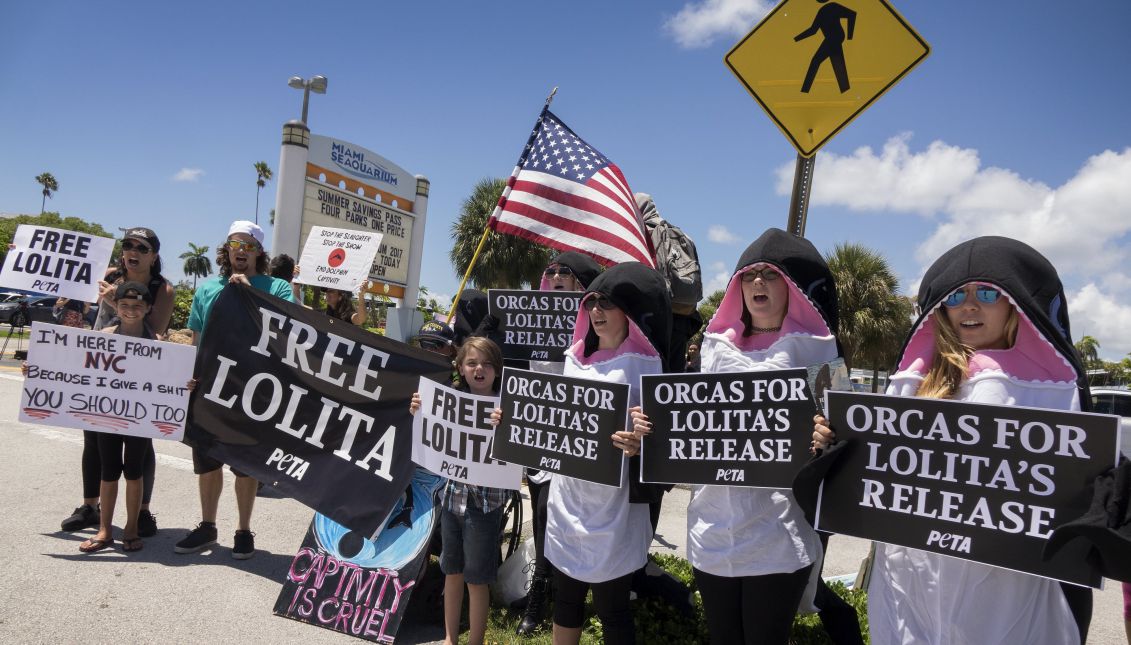
Freedom for Orca Lolita, Miami activists claim
Disguised as whales, a number of young girls tried to block visitors' cars from approaching Miami Seaquarium where the orca Lolita completed Tuesday her 47th year in captivity.
The little girls and teens were among some 20 demonstrators organized by People for the Ethical Treatment of Animals (PETA), an environmentalist group that keeps up a legal battle to win freedom for the orca, also known as a killer whale.
With signs like "Stop the slaughter, stop the show" and "Captivity is cruel," the activists tried to dissuade visitors and tourists from entering the Seaquarium.
PETA Director Matt Bruce was sorry that Lolita has spent the last 47 years in the smallest orca tank in the United States, ever since 1970 when she was pulled out of Puget Sound in the northwestern US state of Washington when she was only 4 years old.
"We urge Miami Seaquarium to immediately do the right thing for Lolita," Bruce told EFE.
He recalled that after one legal battle, Lolita was included on the 2015 federal list of animals protected under the Endangered Species Act.
CONTENIDO RELACIONADO
Nonetheless, he acknowledged that it is only the aquarium that can immediately permit Lolita to "lead a normal life," and in that sense called on people "never to visit Seaquarium and to encourage friends and family to boycott it."
"It isn't natural that she's doing tricks for the people, she's been tortured, she's blinded by the chlorine...I want to tell people that's not right," a worried 9-year-old Angelina Poli told EFE, adding that it was her mother who taught her about Lolita's sad life.
According to PETA, the orca has lived a lonely life without a companion for more than three decades, ever since her partner Hugo killed himself by banging his head against the sides of the small pond they shared.
However, Andrew Hertz, administrator of Miami Seaquarium, told EFE that Lolita is "healthy" and shares her habitat with white dolphins from the Pacific.
The board of directors of Seaquarium, acquired in 2014 by the Spanish amusement park specialist Parques Reunidos, said there is no evidence that Lolita the orca could survive if she were released in the open waters of the Pacific Northwest.
"It would be imprudent and cruel to treat her life like an experiment and put her health and safety in danger, just to calm down some marginal group," Hertz said
He said Lolita "plays an important role in Miami Seaquarium's mission to educate the public on the need to preserve the marine environment and its inhabitants"










DEJE UN COMENTARIO: